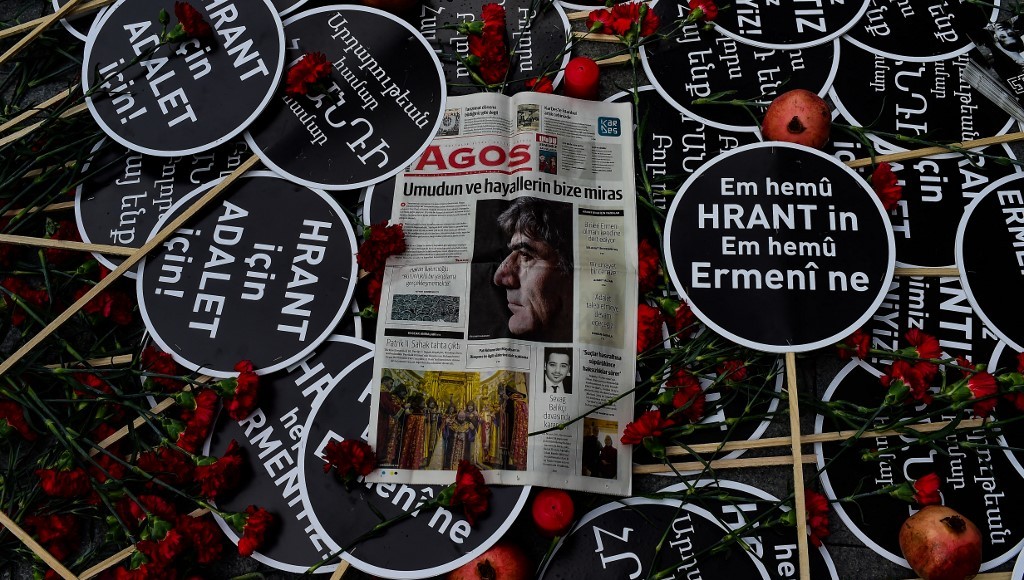The family of Turkish-Armenian journalist Hrant Dink, who was murdered in broad daylight in İstanbul 14 years ago, on Friday said in a statement regarding a court ruling delivered at the final hearing of Dink’s murder case that it wasn’t convincing because the trial did not include the real actors behind the journalist’s assassination.
The 52-year-old Dink, editor-in-chief of the Turkish-Armenian bilingual Agos weekly, was shot dead with two bullets to the head outside the newspaper’s headquarters in central İstanbul on Jan. 19, 2007, by a then-17-year-old jobless high-school dropout.
The family underlined that Dink was murdered at the end of a three-year period during which the journalist was “threatened and pointed to as a target by officials from Turkey’s General Staff, politicians, journalists and members of pro-government associations.”
They also referred to a piece written by Dink a week before he died, titled “Why was I chosen as a target?” wherein he detailed the attacks and threats he faced, concluding with racist protests in front of Agos headquarters and criminal complaints filed against him.
“None of the events, individuals and relations Hrant Dink mentioned in his last piece has been included in the investigation in the last 14 years. … The operation [targeting Dink] didn’t end when he died. It continued through negligence, coverups, destruction of evidence and misleading in his case. It’s not possible for a [ruling given in a] trial that doesn’t include this whole apparatus to convince us or the public,” the family emphasized.
“The verdict given today was one that failed to shed light on Dink’s murder and convict those really responsible for it. … This judgment includes substantial errors and will [eventually] be reversed [by a higher court],” family lawyer Hakan Bakırcıoğlu said, announcing that they would take the ruling to the Supreme Court of Appeals.
The verdict given by the İstanbul 14th High Criminal Court during the final hearing of the trial of 76 defendants – the majority of them public officials – accused of having had a role in Dink’s killing included 33 acquittals and 27 convictions.
Ramazan Akyürek and Ali Fuat Yilmazer, two of the jailed defendants and former police chiefs, were given aggravated life sentences, while four defendants, including the former gendarmerie members Muharrem Demirkale and Yavuz Karakaya, received life sentences.
Separating the files of 13 fugitive suspects, including US-based Muslim cleric Fethullah Gülen, on the grounds that their defense statements were not delivered, the court also ruled that Dink’s murder was committed “in line with the objectives of FETÖ” – a derogatory term used by the Turkish government to refer to the movement inspired by Gülen as a terrorist organization.
For years, prosecutors have looked into alleged links between the suspects and Gülen, who is accused of masterminding a failed coup against President Recep Tayyip Erdoğan in 2016, although he strongly denies the charges.
The Turkish government’s ongoing crackdown on the Gülen movement was launched following corruption investigations in late 2013 that implicated Erdoğan’s close circle and culminated in the aftermath of a failed coup on July 15, 2016.
Although both Gülen and his followers deny any involvement in the abortive putsch and in any terrorist activities, a total of 622,646 people have been investigated and 301,932 have been detained, while 96,000 others have been jailed due to alleged links to the group since the failed coup, according to the latest Interior Ministry data. The data further shows that there are currently 25,467 people in Turkey’s prisons who were jailed on alleged links to the faith-based movement.
